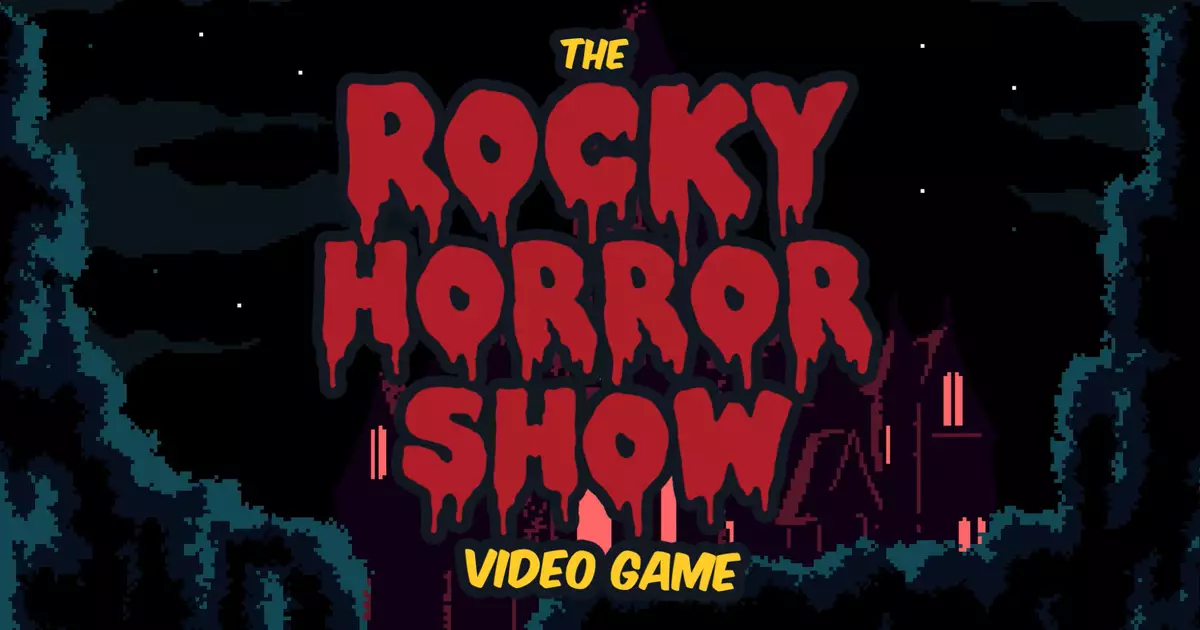When the term “The Rocky Horror Show” is mentioned, it evokes a potent nostalgia that transcends simple entertainment. This cult classic, which made its debut in the 1970s, holds not only a significant place in musical theatre but also a deep emotional resonance for its dedicated audience. The experience of attending a screening is often transformed into a communal ritual, characterized by elaborate costumes, theatrical participation, and a shared understanding of the film’s myriad references. During my own attendance at a fan screening in 2005, I found myself immersed in this vibrant atmosphere, complete with an audience decked out in outfits reminiscent of the flamboyant characters on-screen. The thrill of witnessing a room filled with like-minded enthusiasts turned a simple movie night into a celebration of unabashed self-expression and a love for the film’s campy charm.
This shared experience becomes even more pronounced during iconic scenes, such as when the castle takes flight, prompting audience interjections that have become a staple of the Rocky Horror experience. For many attendees, these moments serve as a comical reminder of the film’s absurdity, as well as a rallying cry for those well-versed in its lore. However, within this chaotic exchange lies the reflection of personal identity and community. I found myself in a subtle face-off between enjoying the performance and attempting to introduce my own flavor of humor into the mix, highlighting how fandom can breed both connection and tension.
At its core, The Rocky Horror Show stands as a bold testament to sexual liberation and countercultural rebellion. When it first premiered, it served as a refreshing departure from the constraints of traditional storytelling, presenting a narrative that embraced sexual fluidity and challenged social norms. Characters like Dr. Frank-N-Furter, epitomized by the captivating performance of Tim Curry, not only entertained but also provoked thought and discussion surrounding gender and sexuality, themes that were particularly subversive for its time.
Reflecting upon the societal landscape during the film’s inception, it is evident how such narratives paved the way for subsequent generations to feel more comfortable embracing their individuality. However, the film’s impact extends beyond the themes it explores; it has fostered an ongoing dialogue around representation and acceptance, resonating with audiences from diverse backgrounds. This cultural layering contributes to the timelessness of the musical, allowing it to resonate with newer audiences even decades later.
As I often find myself engaging in conversations about The Rocky Horror Show, I’ve come to realize that its influence permeates various forms of media, including the video game industry. Recently, the announcement of a new video game adaptation by FreakZone Games has sparked excitement among fans. By transforming this beloved musical into a retro platforming experience, the developers have found an innovative way to introduce Richard O’Brien’s iconic work to a fresh audience, while appealing to nostalgic gamers who hold fond memories of previous adaptations.
The announcement brings a wave of curiosity: how will the game navigate the intricate world of Rocky Horror? The notion of “jumping to the left” and engaging in classic platforming combines gameplay with the quintessential musical score, promising an entertaining intersection of narrative and interactivity. Yet, it also raises questions about whether such adaptations can ever encapsulate the sheer joy and communal atmosphere of a live screening. Will the game provide the kind of visceral experience that brings audiences together, or will it stand as a testament to individual escapism?
The emotions that arise when reminiscing about both the film and my experiences are complex and layered. My past encounter with a fellow audience member has lingered, blending amusement with a lingering desire for recognition within the community. Where do we find ourselves in the spectrum of fandom? Do we seek acceptance, or are we drawn to embody certain roles within the space? This interplay of identity and community is pivotal to the ongoing legacy of The Rocky Horror Show.
As I await the release of the upcoming game, I can’t help but reflect on the evolution of our cultural narratives and how they adapt through various mediums. This beloved musical continues to inspire conversations, provoke new interpretations, and, most importantly, unite people in a celebration of diversity and creativity. The Rocky Horror Show remains a cornerstone of performance art, and as it weaves its way across generations and platforms, its spirit of rebellion and unique charm will undoubtedly leave an indelible mark on the cultural landscape for years to come.


Leave a Reply
You must be logged in to post a comment.